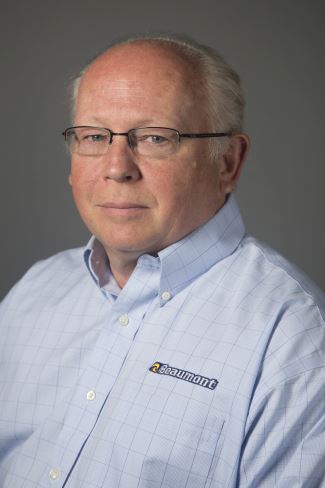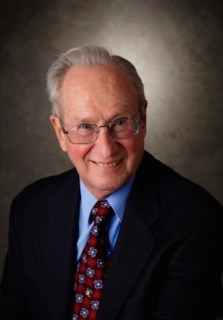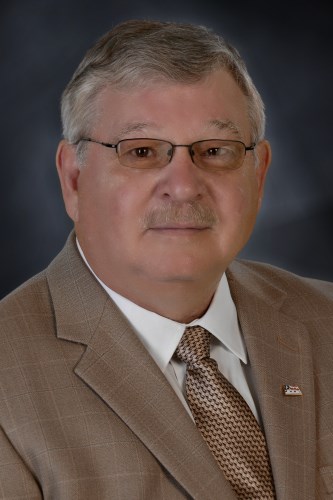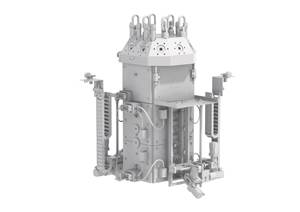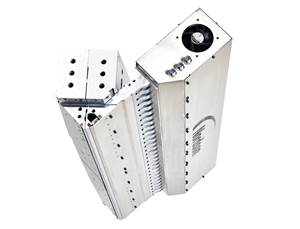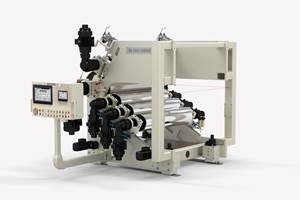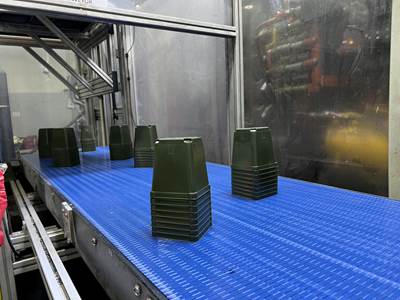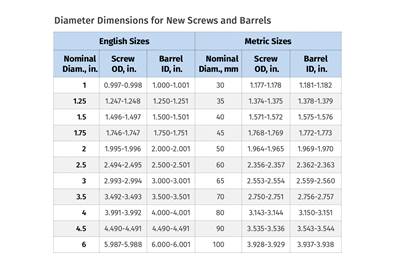The
Plastics Pioneers Association (PPA), McHenry, Ill., this month announced that four new members have been elected to the organization. Founded in 1944, the PPA is a non-profit organization of about 200 members, all of whom have at least 25 years of experience in plastics. The group’s primary purposes are to preserve the history plastics and nurture its future by awarding scholarships to students seeking a career in the industry and by supporting other educational programs.
The new inductees are:
• John Beaumont: Beaumont has been in pioneer in advancing injection molding technology—and promoting educational opportunities in plastics—for more than 40 years.
Beaumont earned his Bachelor's of Science Degree in Plastics Technology in 1976, and his Master’s Degree in Plastics Engineering in 1994, both from U-Mass Lowell. Early in his career, he was involved in research engineering, project engineering, and technical management for companies such as General Tire and Rubber Co., Rowland, Ciba Vision Corp., and Moldflow.
For 25 years, Beaumont has been professor and program chair for the Penn State Erie Plastics Program, where he was one of the three founding faculty members. He is also the president of his own company, Beaumont Technologies Inc., where he has spearheaded the development of numerous innovative technologies that have helped raise the process of injection molding from art to science.
Beaumont has been actively involved with the Society of the Plastics Engineers (SPE) for most of his professional career. He has written five books related to various aspects of injection molding technology, contributed chapters to four other books, and has written dozens of technical articles for trade publications and journals. He is the holder of seven patents, with two more pending.
• Joseph Bennett: Bennett began what would become a 50+ year career in plastics in tooling: first as a moldmaker with Western Electric in 1967, then as a tooling engineer for Decorative Components. In 1970, he co-founded United Southern Industries in North Carolina as a custom injection molder that initially had five 200-ton presses and did $2 million in sales. He ultimately became president and CEO of USI, and when the company was sold in March 2011 to Wilbert Plastics, it had grown to more than $30 million in annual sales and employed more than 200 people.
Bennett first joined SPE in 1966, and is currently an Honored Service Member Emeritus, a distinction he received in 1997. Over his career he has held various positions for SPE’s Injection Molding Division, including serving on the group’s board of directors for more than 10 years.
Throughout his career Bennett has been committed to continuing education. He served as Education Chair for SPE. In 1988 he accepted a challenge to match a $100,000 donation to establish the Richard Goolsby Foundation for promoting plastics education. Three years later he had raised $200,000. He established a curriculum for plastics programs at Isothermal Community College in Forest City, N.C., and contributed to two local scholarships to help students pursue careers in plastics.
• James Johnson: Johnson’s career in plastics has spanned six decades. He earned Bachelor's of Science degree from the University of Massachusetts in 1960, then shortly thereafter joined Rexall Chemical Co., as Technical Service Engineer. After a seven-year stint at Rexall, Johnson began what would become a 46-year-career in the extrusion machinery business. He joined Johnson Plastics Machinery (no relation) in 1968 as vice president of sales and marketing. That same year, he earned his Master’s Degree in Chemical Engineering from Stevens Institute of Technology.
In 1980, Johnson joined Reifenhauser Van Dorn as vice president of sales. From 1986 through 1994, Jim was the business manager of sheet products for Davis-Standard. Then in 1994, Jim moved over to the flat-die side of the business when he joined Extrusion Die Industries as vice president of sales. From 2004 to 2014, Johnson was senior vice president of sales for Processing Technologies International (PTi), a leading supplier of sheet extrusion systems.
Johnson has been a long-time member of SPE, and has presented papers at numerous ANTECs and regional conferences. In 2007, the Extrusion Division of SPE presented him with the Jack Barney Award for his contributions to sheet extrusion. In 1988, he received the President’s Award from Crompton & Knowles, which at the time was the parent company of Davis-Standard.
• Dennis Meade: Meade has been in the plastics and chemicals business since 1971. A chemistry major at Kent State University, Meade began his career as operations manager for Lancer Chemical from 1971 through 1977. Thereafter he began to focus more on the color industry: from 1980 to 1988 he was technical director for Leglo Color. Then, after running Ferro’s Huron, Ohio plant as general manager in 1989, Meade founded and was president of Phoenix Color.
In 2000, after Accel Color purchased Phoenix, Meade stayed on as vice president of technology. In 2009, he joined Techmer as specialty products manager. Currently, Meade is business development manager for Chroma Corp.
Meade has been a member of SPE since 1971. He served two terms as president of SPE Ohio Fireland’s section, where he also chaired the education committee. He has also been chair of the education committee for the Detroit sections of SPE; served as a board member for 12 years on the SPE’s Color and Appearance Division; and since 1978 has been a member of the Detroit Color Council.
Throughout his career Meade has been very active in promoting education in plastics and color. He is a founding committee member and current member of the advisory board of the Terra Community College Plastics Color and Manufacturing Associate's Degree Program. He is also a founding committee member of the Plastics Manufacturing Certificate and Associate's Degree Program at Schoolcraft College.

